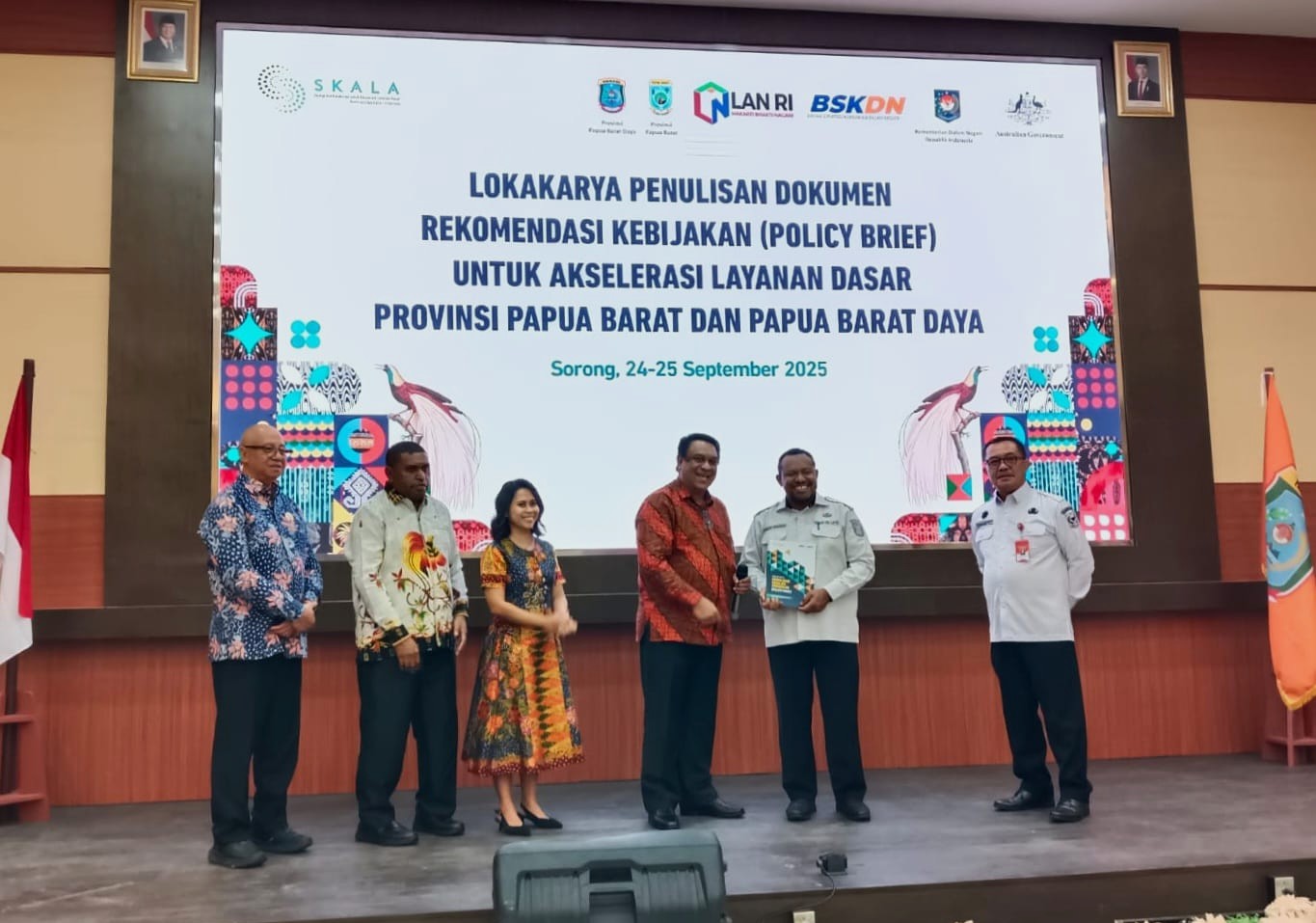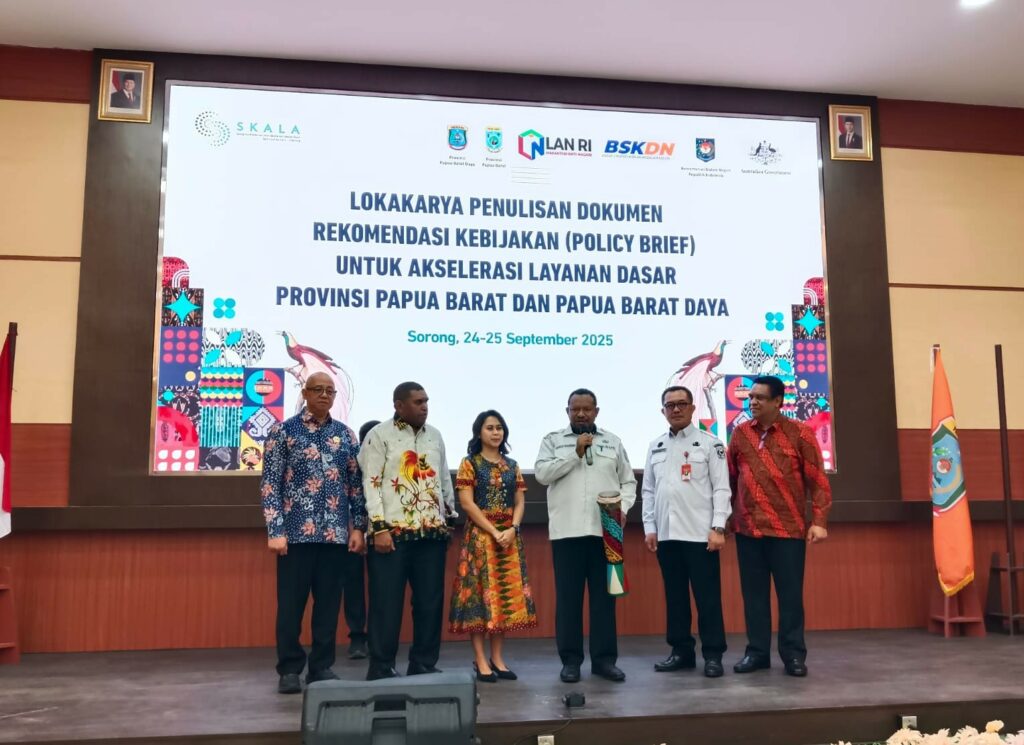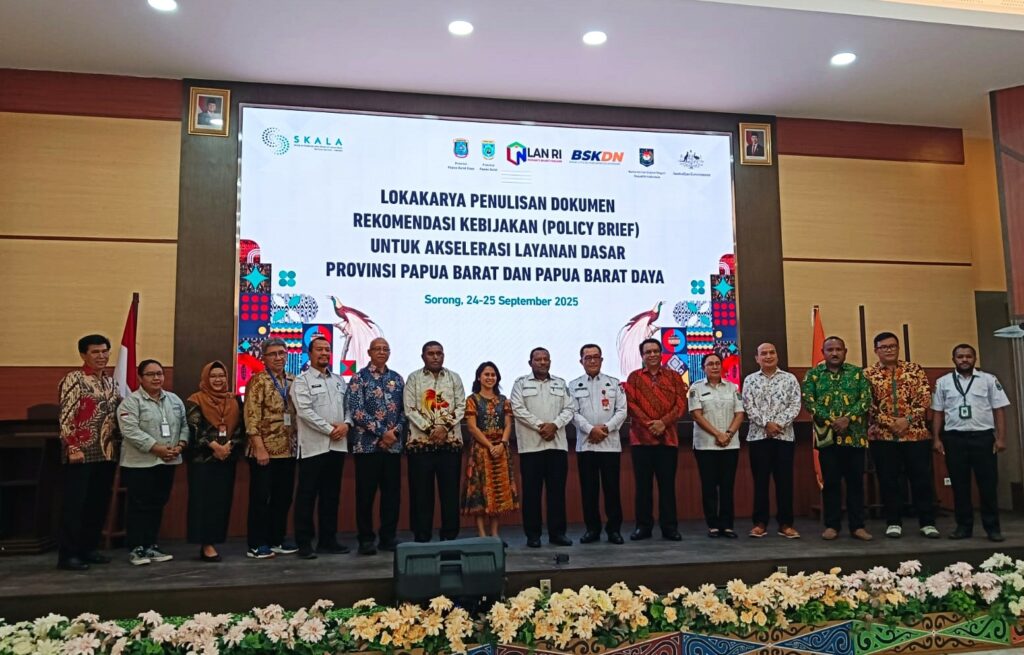Papua Barat and Papua Barat Daya Strengthen Capacity to Develop Policy Recommendations for Basic Services

The provincial governments of Papua Barat and Papua Barat Daya collaborated to hold a Policy Brief Writing Workshop in Sorong on 24 September 2025. The event marked an important step in strengthening the capacity of government officials and stakeholders to develop evidence-based policy. Participants included functional policy analysts, government officials, academics, and representatives from civil society. The workshop received support from Indonesia’s Ministry of Home Affairs, through the Agency for Strategic Policies of Home Affairs (BSKDN – Badan Strategi Kebijakan Dalam Negeri – Kemendagri), the National Institute of Public Administration (LAN – Lembaga Administrasi Nasional Republik Indonesia), and SKALA, the Australia–Indonesia Partnership for the Acceleration of Basic Services.
Addressing the workshop, the Vice-Governor of Papua Barat Daya, Ahmad Nausrau, stressed that strengthening fiscal independence is central to the province’s development agenda, including its goal of positioning Papua Barat Daya as a hub for Hajj embarkation in eastern Indonesia.
“This major agenda requires stronger capacity and cross-sectoral support. We are grateful for the backing of the national government and development partners who have been accompanying the policy process in our region“, he said.
Meanwhile, the Head of Papua Barat Daya’s Regional Development Planning, Research, and Innovation Agency (Bapperida – Badan Perencanaan Pembangunan, Riset, dan Inovasi Daerah), Pak Rahman, noted that his office is developing a workforce plan for functional positions across government agencies. He said alumni of the workshop will serve as an internal think tank offering timely and technical input to strengthen policy development at the local level.
Multi-Stakeholder Collaboration
BKSDN Head, Yusharto Huntoyungo, reaffirmed the central government’s commitment to improving the quality of regional policy and innovation. He also highlighted that the Regional Innovation Index (IID – Penilaian Indeks Inovasi Daerah) assessment for Papua provinces is conducted separately from other provinces in Indonesia and clustered specifically for Papua.
‘This is to ensure the assessment is fairer and better reflects the local context,’ he explained.
SKALA’s Program Implementation Director, Ted Weohau, underlined that SKALA operates in seven special autonomy provinces – six in Papua and one in Aceh – to strengthen the quality of public policy and basic services.
“Collaborative approaches such as this workshop are crucial to reinforce synergies between government, academia, and civil society, ensuring that policies respond directly to community needs,” he said.
The workshop focused on five priority areas of development: Minimum Service Standards (SPM – Standar Pelayanan Minimal), Public Financial Management (PKD – Pengelolaan Keuangan Daerah), Data and Analysis, Gender Equality, Disability and Social Inclusion (GEDSI), and Papua’s special autonomy. Through training and hands-on policy brief writing, officials from Papua Barat and Papua Barat Daya will be better prepared to deliver stronger, data-driven policy recommendations aligned with real community needs.
This collaboration marks a significant step towards more inclusive, responsive, and independent governance, reflecting the commitment of both provinces to strengthening the foundations of long-term development in Tanah Papua.








